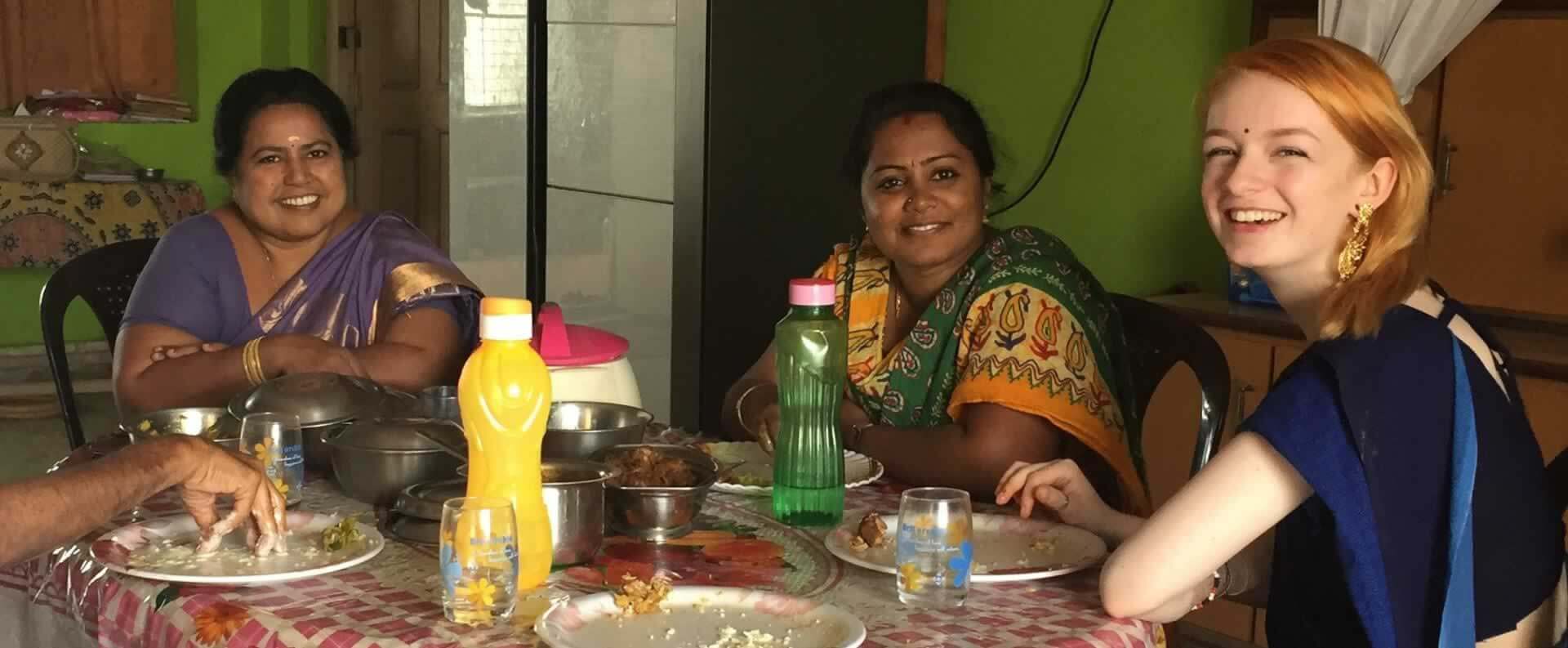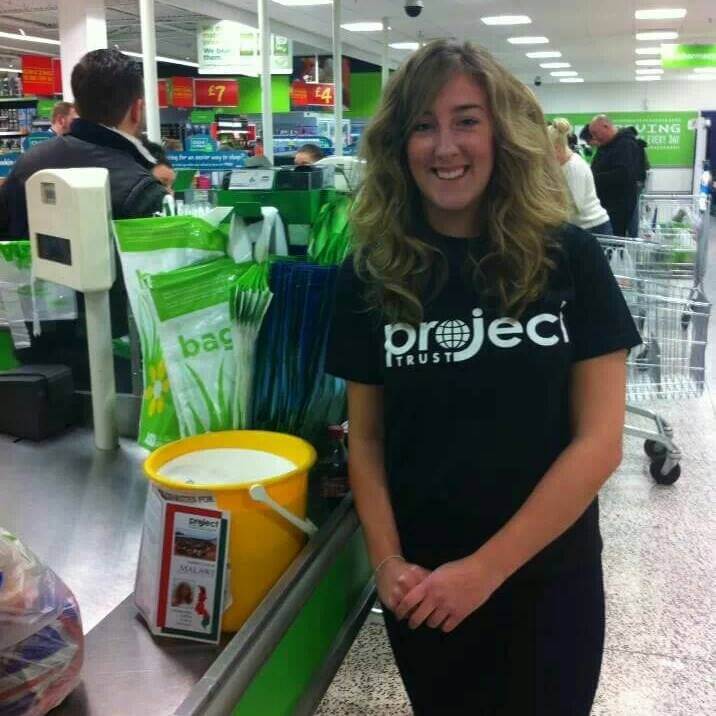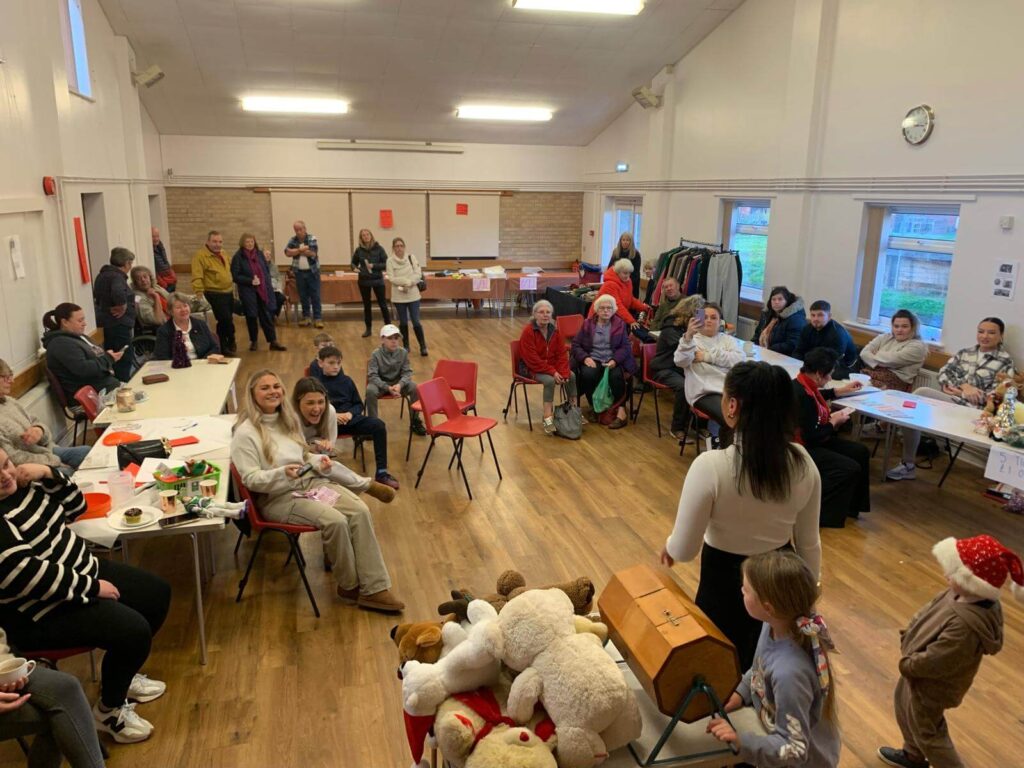
Charitable Trusts
Volunteer Fundraising
Charitable Grant-Making Trusts exist to make financial donations towards charitable aims.
If you write to Trusts whose criteria match your international placement, they might choose to sponsor you. We strongly recommend that one of the first things you do is research and write to at least 100 Trusts.
This is a big task, but we tell you this because you will not hear back from most of the Trusts you apply to; there are simply too many applicants. But with enough applications to relevant Trusts, some Volunteers make more than 50% of their total through grants from Trusts.
Many trustee boards only meet once or twice a year, so you should apply as early as possible in the process, as they might otherwise meet too late to be able to sponsor you. It can take many months to hear back from a Trust.

The Steps Involved
1. Find relevant Trusts to apply to
2. Write a letter to those Trusts
3. Send out your letters (& thank your sponsors!)
Where to look for Charitable Trusts
There are thousands of Trusts across the UK, but only some will consider sponsoring you. To find the right Trusts to apply to, you need to look through lists of Trusts for those which want to sponsor you.
Project Trust has good working relationships with many Trusts which we recommend you apply to for funding, included in our Recommended Trusts List at the end of this section. We also have a Do Not Approach List of Trusts who have specifically requested that our Volunteers do not contact them. This is for a variety of reasons, including not matching their criteria, and previous Volunteers accepting their grants and not thanking them.
We recommend the following starting places to look for Trusts:
This is a physical book released every year which most large libraries have. It lists all active Trusts and provides their basic details, so you can check where to apply and which causes the Trust supports.
In many libraries this will be a “reference copy”, which means you cannot remove it from the library – you’ll need to study it in the library itself.
Try using search engines to find promising links, or look through the following official regulator websites for complete lists of charitable bodies:
- England & Wales: The Charity Commission (charitycommission.gov.uk)
- Scotland: The Office of Scottish Charities Regulator – OSCR (oscr.org.uk)
- Northern Ireland: The Charity Commission for Northern Ireland – NICC (charitycommissionni.org.uk)
These lists will show you all charities, not just Charitable Trusts. You will need to use filters to show only “grant-making charitable bodies”.
(eg. Project Trust will show up on the OSCR, since we are a charity registered in Scotland!)
Here are the lists we provide: one as a starting point, and the other to avoid contacting
Identifying Relevant Trusts
Charitable Trusts exist to make grants for all manner of purposes, many of which do not match volunteering on an international placement. For each Trust you need to look for both matching aims and disqualifying criteria. The former makes them more likely to want to sponsor you; the latter mean you should not apply to them at all.
- Young people.
- Expedition abroad, or international project.
- Character building.
- Challenges.
- Education, social care, or youth development.
- Sustainable development.
- Geographic match.
- Not specifically a grant-making body. The online directories include all charitable bodies – including Project Trust on the OSCR! Make sure you filter out other Charities.
- Does not support individuals. You are fundraising for Project Trust, but your project is a personal, individual undertaking, and this is how Trusts will view you.
- Geographically relevant. Some Trusts make grants for a single UK parish or borough; if you do not live within their remit they will not consider you.
- On our Do Not Approach List. We put Trusts on here for a good reason. Please double check your lists before sending any applications.
- Does not consider unsolicited requests. Any application to a Trust is “unsolicited”. Do not contact these Trusts; they do not want to hear from you.
As you go through Trust lists, create your own list of Trusts you will apply to. Important things to note include the Trust’s name, postal address, named trustees, and specified aims. You should also note down any websites or specified methods of applying (many will not specify – see below).
Some Trusts don’t supply much information. The less they specify, the less likely they are to support your endeavours, but provided nothing disqualifies you there is no harm in applying (double check our Disqualifying Criteria list, and especially our DNA list). If you don’t ask, the answer is no.
Applying for a Grant
Look for specific ways to apply for grants by searching your Trusts on search engines. Some Trusts have a website and will provide an application form which they expect you to use.
If unspecified, a Trust will expect to receive grant applications by physical letter sent through the post. For such applications, you should send a formal letter, printed and then signed in pen. We also recommend enclosing a printed leaflet to detail your fundraising efforts (see Advertise your efforts on the Getting Started page for a template leaflet).
You do not have to write a new letter for each Trust. If you write one good letter, you should be able to send it to most Trusts by changing the address and recipient (the IT-keen among you can use a Mail Merge for this). If you noted any specified aims for each Trust, you should adjust letters to highlight the relevant parts of your project – there are so many aspects to a placement with Project Trust that we fulfil many different focuses!
See our template letter at the end of this section and feel free to use it as a starting point, but please go through and make sure it is entirely personal to you. If you prefer to start from scratch, consider the following pointers:
Trusts need to know why you have chosen to apply to them specifically, and why your endeavours are worth their sponsorship. A good layout by paragraph is suggested here:
- Name the Trust and note what it is they fund. Try to research the founding purpose of the Trust and name the Chairperson of the trustees.
- Talk about yourself and why you want to go to your country. How does this fit into your personal development? Consider language, culture, developing independence, etc… Tailor this to their charitable aims.
- All about Project Trust – going away with an organization adds credibility to your year. Talk about your Journey with us so far, and where this will lead you (Training, placement, Return).
- This should be all about fundraising – how much you have to raise, what this money covers (flights, insurance, etc), and your other methods of fundraising. What have you already done, and what are you planning (use your strategy to guide this).
- Conclude your letter by thanking them for their time considering your application. Offer to update them on your progress once you reach your goal and once you’ve returned from your placement (see Advertise your efforts for advice here).
There are strict rules governing formal letters which Trusts will expect you to observe. Many of these rules may seem arbitrary, but following these rules will yield the most positive responses from Trusts:
- First: your full name, address, the date, and your contact information should be right-aligned.
- Second: their full name and address should be left-aligned, followed by a paragraph break and then “Dear [addressee]”. Do your best to find a named trustee, but if nothing is provided the addressee should be “Sir or Madam” (no slash!); alternatively replace “Dear [etc.]” with “To whom it may concern”.
- Register: you should adhere to “formal register” throughout. This means no abbreviations (the “I’ll”s, “you’d”s or “it’s”s) or jokey asides. Imagine you are speaking to someone like your headteacher, principal, or grandparent. This language can seem stilted, but is a good way to impress trustees through a letter – they won’t see you in person and don’t know how enthusiastic you are!
- Grammar: even if we weren’t an educational charity, trustees will respond well to technically correct grammar. Find your most pedantic friend and ask them to proofread if this is not your wheelhouse. Fundraising support is also happy to proofread letters (Tom is generally the “most pedantic friend” to those who know him).
- Format: either leave a space between paragraphs, or indent each new paragraph, but not both. A font size below 12pt will be unfriendly to many trustees, and choose an unremarkable font that you might see on school letters or official websites (no Comic Sans or Papyrus). Your letter should fit onto a single side of A4.
- Signoff: if you write to a named addressee you should sign off your letter, “Yours sincerely,” but if the addressee is not named the correct sign-off is, “Yours faithfully.”

“I sent about 200 letters out to Charitable Trusts and waited with baited breath for replies. After an initial flurry of negative responses, money started to trickle in – very exciting! However, I had a really disappointing reply from one charity – they said that they couldn’t sponsor me because previously some Project Trust volunteers hadn’t kept in contact with them during their year out.”
– Amy, Guyana Volunteer
